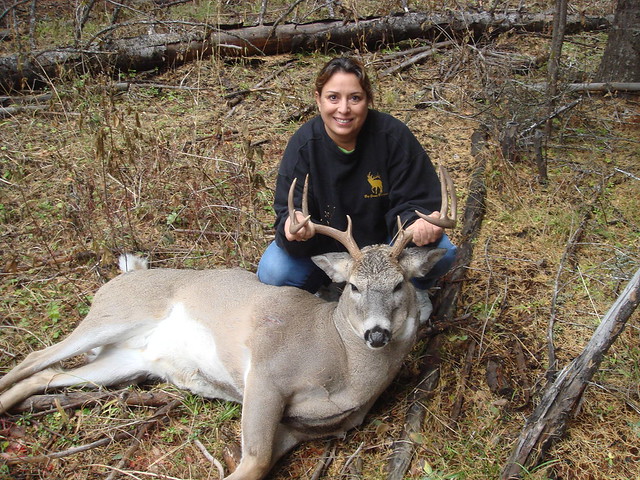
To some people, hunting is a foreign concept. In the era of readily-packaged meats easily purchased at a nearby grocery store, the need—outside the sport of it—might seem outdated.
Still, there are many people that to this day, choose to or must hunt to put food on the table. Others feel that taking animals themselves is a more ethical way to feed themselves and their family.
For Sandra Broncheau-Mcfarland, it is all of these things and more.
“My father and family started me hunting as part of my culture being Nez Perce and Cherokee,” Broncheau-Mcfarland said. “It was tradition and necessity.”
Today, Sandra is Administrator for the Nez Perce (Nee-Me-Poo) National Historic Trail, a job she has been at for 16 years.
She grew up on the Nez Perce Indian Reserves, and her father took her hunting on their ancestral lands from the time she was just a baby.
“My dad always talked about the traditions of our tribe, about how the earth and all the plants and animals in it are to be cherished and protected,” Sandra said.
“We considered animals our kin.”
Sandra carries her father’s lessons from their ancestral teachings with her to this day. She says that many of the core ethics her people have held for millennia are shared by hunters from all backgrounds — from the overall respect for nature and wildlife, to the importance of a clean kill.
“My dad was stern about us not shooting if we could not make a good shot — we didn’t want the animal to suffer.”
After the hunt, they would pray or sing a song to thank the animal for giving its life for them. They would also use every part of the animal, partly out of utility, but mostly out of respect.
“Wasting of any kind is a serious offense and, we believe, is punished by sickness or bad luck in future hunts.”
Of course, not everyone is raised in such a tradition. Sandra still acknowledges a unique affinity among hunters from all walks of life. She says that among dedicated hunters like herself, it is not about the trophies or putting food on the table. The affinity is about a shared philosophy and serving an important role in keeping ecological balance.
“Being hunters means belonging to a group of people intimately connected to the land,” Sandra says. “Together, we help to care for the land and keep populations in check.”
Collectively, hunters contribute more to wildlife management than any other organizations through self-imposed excise taxes on equipment and ammunition. These funds go to state fish and wildlife agencies which take on habitat improvement projects and other wildlife conservation efforts. To date, this accounts for nearly $11 billion.
Today, nearly all of the 193 million acres of national forests and grasslands are open to hunting. To find your next hunting spot, visit our Interactive Visitor Map or call a forest or grassland near you.
